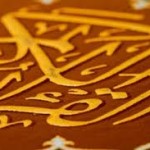What is the solution to bad memories of past events in my life?
To download this Fatwa, please click here
QUESTION:
I am, well I was a very religious and practicing Muslim, well this is all relative of course, I was a full hafiz of the holy Quran. I’ve been working abroad for the past 2 years and have wandered away from the core principles of my amazing, beautiful and prosperous religion.
However, I am trying to become the same religious individual I once was when I was younger. Fortunately, I’ve been to Saudi Arabia a few times, I often imagine it when I’m reciting the holy Quran. The last time I went was with my excuse for a mother and abusive step father, I’m sure you can gather from my choice of words that my last trip to Saudi Arabia was not pleasant at all.
Now every time I recite Quran or do any religious acts, all the bad memories of my last trip fill my head. How do I stop this, how do I forget memories I wonder?
ANSWER:
In the Name of Allah, the Most Gracious, the Most Merciful.
As-salāmu ‘alaykum wa-rahmatullāhi wa-barakātuh.
Dear brother, at times, bad memories linger around and it takes some time for them to be forgotten. A believer should always keep his trust in what Allah has decreed and should look at the brighter aspects of his/her life before looking at the dark side, for this will certainly make one content and happy. In addition, we should try to substitute and convert these bad memories into positive action.
If these memories come about when you recite the Holy Qur’ān or perform any religious acts, you should try to focus on the act you are engaging in. For example, when you are reciting the Holy Qur’ān, you should try to simultaneously ponder on its meaning [1]. Moreover, when you are performing Salāh, think of Allah Ta’ālā – that you are seeing Him or at least that He is seeing you; or think of heaven and hell [2]. It is important to be focused on the moments themselves and embrace the depth of the deed you are engaging in, in order to forget about other distractions and past memories.
Bad memories and wasāwis (evil whispers) are evoked by shaytān. The Prophet (peace be upon him) taught us many du’ās (supplications) to seek protection from shaytān via the following:
وَقُلْ رَبِّ أَعُوذُ بِكَ مِنْ هَمَزَاتِ الشَّيَاطِينِ وَأَعُوذُ بِكَ رَبِّ أَنْ يَحْضُرُونِ
Transliteration: Rabbi A’oodhu bika min Hamazaatish shayaateen wa A’oodhu bika Rabbi Ay-Yahduroon
Translation: “And say, My Lord, I seek refuge in You from the incitements of the devils. And I seek refuge in You, My Lord, lest they be present with me.” [3]
أَعُوذُ بِاَللَّهِ السَّمِيعِ الْعَلِيمِ مِنْ الشَّيْطَانِ الرَّجِيمِ مِنْ هَمْزِهِ وَنَفْخِهِ وَنَفْثِهِ
Transliteration: A’oodhu Billaahis Samee’il Aleemi Minash shaythaanir rajeem min hamzihee wa Nafkhihee wa Nafthih
Translation: “I seek refuge in Allah, the All-Hearing and All-Knowing, from the accursed devil, from his evil suggestions, from his blowings and from his spitting.” [4]
أَعُوذُ بِكَلِمَاتِ اللَّهِ التَّامَّةِ مِنْ كُلِّ شَيْطَانٍ وَهَامَّةٍ، وَمِنْ كُلِّ عَيْنٍ لاَمَّةٍ
Transliteration: A’oodhu bi Kalimaa-tillaahit-taammati min kulli shaythaaniw wa Haammah wa min kulli ‘Aynin Laammah
Translation: “I seek refuge with Your Perfect Words from every devil and from every vermin and from every evil, harmful, envious eye.” [5]
Each of the above du’as (supplications) should be read thrice daily, each morning and evening. Moreover, one should also recite Sūrah Falaq and Sūrah Nās [6].
Additionally, the Sahābah (companions of the Prophet – peace be upon him and them) led exemplary lives which make them the perfect models to be followed for success. They had memories that were very overwhelming and significant events in their lives due to the fierce challenges they had to face and the severe torture they had undergone. Yet, they were the most exceptional figures in worship and good deeds; these bad scenarios did not affect their worship.
In order to inculcate this within us, we should begin by reading about their lives, their worship and their devotion in prayer as this would give us an insight into how our thoughts should be channelled during worship. It may be that we relate to a particular story of the Sahābah and so, we can keep this in mind whilst we pray or engage in any form of worship; this would gradually [with the permission of Allah] help forget those past bad memories.
There are many works written on the lives of the Sahābah. One such book that we recommend is Hayātul Sahābah, written by Mawlānā Yūsuf Kāndhalwī (may Allah have mercy upon him). Volume 1 can be accessed here: https://contentislam101.files.wordpress.com/2015/04/hayatus-sahaba-lives-of-the-sahabah-vol-1-by-muhammad-yusuf-khandalwi.pdf
May Allah Ta’ālā remove your difficulties, grant you happiness and protect you from the whispers of shaytān. Āmeen.
And Allah Ta’ālā Knows Best
Musayb Dhaleel
Concurred by:
Hanif Yusuf | Zayd Imran
References
[1]
أفلا يتدبرون القرءان أم علىٰ قلوب أقفالها
Translation: "Then do not they ponder [over] the Qur'ān or upon [their] hearts [are] locks?"
[al-Qur’ān: 47:24]
[2]
قال ما الإحسان: أن تعبد الله كأنك تراه، فإن لم تكن تراه فإنه يراك
[Sahīh al-Bukhārī: 4777]
[3]
[al-Qur’ān: 23:97]
[4]
من قال حين يصبح ثلاث مرات أعوذ بالله السميع العليم من الشيطان الرجيم وقرأ ثلاث ايات من اخر سورة الحشر وكل الله به سبعين ألف ملك يصلون عليه حتى يمسي وإن مات في ذلك اليوم مات شهيدا ومن قالها حين يمسي كان بتلك المنزلة
[Sunan al-Tirmidhī: 2922]
[5]
قال كان النبي صلى الله عليه وسلم يعوذ الحسن والحسين ويقول : إن أباكما كان يعوذ بها إسماعيل وإسحاق، أعوذ بكلمات الله التامة من كل شيطان وهامة، ومن كل عين لامة
[Sahīh al-Bukhārī: 3371]
[6]
اقرأ: قل هو الله أحد، والمعوذتين حين تمسي وحين تصبح، ثلاث مرات، تكفيك من كل شيء
[Sunan Abī Dāwūd: 5082]
DISCLAIMER:
The Ask Our Imam site hopes to respond to queries relating to Islamic law. It is not an Islamic Law Shari`ah Court. The questions and answers found on this website are for educational purposes. However, many of the rulings rendered here are distinct to the specific scenario and thus should be read in conjunction with the question and not taken as a basis to establish a verdict in another situation or environment. This site bears no responsibility in these responses being used out of their intended context, nor to any party who may or may not follow the responses given and is being hereby exempted from loss or damage howsoever caused. None of the responses rendered may be used as evidence in any Court of Law without prior written consent of Our Imam. Any reference to another website or link provided in our responses or article should not be taken as an endorsement of all the content on that website; in fact, it is restricted to the particular material being cited.
Posted in Aqaa'id (Beliefs)MiscelleaneousDaily Matters on 30th Apr 2022 by Our Imam | 732 Views





